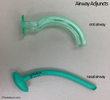- Joined
- Dec 11, 2006
- Messages
- 565
- Reaction score
- 1,644
I'm confused how you interpret what I wrote as this?
I think there is "less on the line" when doing a block for analgesic purposes compared to a surgical block. The latter requires a "perfect block" and that needs more time to do and confirm. This is true regardless of PP or academics.
However PP is more likely to do blocks for analgesic purposes and put the patient under GA after
and you don't need "narcotics and full paralysis" with the GA. that's red herring and you know it.
Well, you said this:
PP don't need it to be perfect so doing it in 5 minutes is fine. the GA is the heavy lifting.
Which implies that there's a lower standard for adequate nerve blocks in private practice, which just isn't true. I'm not arguing that a 45 minute block isn't hyperbole.
So... do you sedate the patients you do your blocks for? Or do you GA them? Is it an analgesic block or a surgical block? That is at the heart of my comments.
A block is a block. Whether it's a surgical or analgesic nerve block would depend on the procedure being performed, but either way the technique itself doesn't change and the time to perform it is the same.
And really how many "surgical" blocks are we really talking about? This only truly applies to a select few upper and lower extremity procedures, and really the only difference is the amount of narcotic used to supplement. I usually just place an LMA and let the patients cruise on around 0.5 MAC of gas, not only for billing, but because frankly it's just easier. Do you really want to deal with an obstructing airway in beach chair position? Or have an awake patient complaining about the tourniquet pressure or their back pain? What patient wants to be fully awake and hear the conversation, terrible music selection, and sounds of the instruments in the OR? Do you really want to spend most of the case babysitting the patient instead of checking your stock portfolio?

